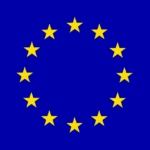More than 200 million girls and women have undergone female genital mutilation, according to the UN. It refers to procedures involving the partial or complete removal of the external female genitalia or other injury to the female genitals for non-medical reasons. Although internationally recognised as a human rights violation, about 68 million girls worldwide are at risk of it by 2030.
FGM is mostly carried out on girls between infancy and 15. It goes back to a mix of cultural and social reasons, such as social pressure and convention, beliefs that FGM has religious support or ideas of beauty and purity. The practice predates the rise of Christianity and Islam and reflects deep-rooted inequalities between the sexes.
-
severe pain and excessive bleeding
-
difficulty when passing urine
-
cysts, infections and infertility
-
psychological problems
-
diminished sexual pleasure
-
complications in childbirth
-
higher risk of new-born deaths
Countries in which female circumcision is practiced
FGM is primarily practised in about 30 countries in Africa and the Middle East. It is also practiced in some countries in Asia and Latin America and among communities coming from these regions.
Although it is illegal in the EU and some member states prosecute even when it performed outside the country, it is estimated that about 600,000 women living in Europehave been subjected to FGM and a further 180,000 girls are at a high risk in 13 European countries alone.
The European Parliament’s commitment to end female genital mutilation
The European Parliament has repeatedly demonstrated a strong commitment to help eliminate the practice of FGM worldwide. By adopting laws and resolutions, MEPs have advocated common action to eradicate female genital mutilation.
Last Wednesday, 12 February, members voted on a new resolution calling on the European Commission to include actions to end FGM in the new EU Gender Equality Strategy, to be presented in March, and to provide care for survivors.
MEPs also reiterate calls to incorporate FGM prevention measures in all policy areas, especially in health, asylum, education, employment etc.
An app to tackle FGM
In 2019, the Restorers, a group of five students from Kenya who developed an app helping girls deal with female genital mutilation, were shortlisted for the Parliament’s Sakharov Prize for Freedom of Thought. Their nomination marks an important step in the fight against FGM, empowering young people to play a role in their own communities.







Leave a Reply